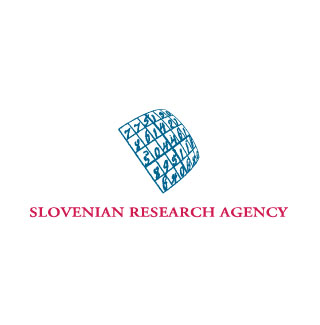Projects
Biotechnological Hub of the NIB (BTH-NIB)
The purpose of the investment project BTH-NIB is the assurance of the appropriate infrastructural conditions for the use of research and developmental opportunities in the fields of operation of the NIB.
Play Video About project Publication
Irradiation dose modifying factor of squamous cell carcinoma of the oropharynx infected by human papillomavirus: an in vitro and in vivo study in laboratory mouse tumor model
Project coordinator: PhD Primož Strojan, OIL
Coordinator for NIB: PhD Metka Filipič
Code: J3-7460
Duration: 1. 1. 2016 - 31. 12. 2018
The authors acknowledge the project J3-7460 was financially supported by the Slovenian Research Agency.
Abstract
Human papilloma virus (HPV) was recently recognized as one of the most important etiological factors in squamous cell carcinoma of the oropharynx (SCCOP). The results of the meta analysis of five prospective series of patients with SCCOP treated with concomitant radiochemotherapy with posthoc stratification of HPV status of their tumors demonstrated a statistically significant reduction in the risk of relapse (odds ratio [RO] 00:43, 95% confidence interval [CI] 0:17 to 1:11) and death (RO 0:49; 95% CI 0.350.69) in patients with HPV-positive SCCOP compared with patients with HPV-negative tumors. According to up to date studies, favorable results of treatment can be attributed mainly to the increased sensitivity of the HPV infected tumor cells to ionizing radiation (radiotherapy), and to certain systemic drugs used in treatment of patients with HPV-positive tumors. Better general condition of patients with HPV-positive SCCOP also contributes to the improved treatment results because it allows more intensive treatment and results in decreased incidence of new primary tumors linked to an unhealthy lifestyle.
Favorable results of treatment in patients with HPV-positive SCCOP with concurrent platinum-based radiochemotherapy initiated idea of treatment deintensification in these patients. Though, the prerequisite is to maintain the curability rate achieved with standard dose radiotherapy and platinum-based chemotherapy, whereas the aim is to reduce the treatment related side effects. In this context, the main obstacle is that the extent of possible reduction in radiotherapy dose and/or dose of concurrently administered systemic chemotherapeutic (cisplatin) used in HPV-positive SCCOP, without any negative impact on curability rate, is not known. Therefore, we intend to carry out a preclinical study of irradiation and/or cisplatin dose modification (deescalation) by means of in vitro study with HPV-positive SCCOP cell line and of in vivo study on HPV-positive tumor model in mice. We also intend to determine the mechanisms responsible for the increased sensitivity of HPV-positive SCCOP to radiotherapy and systemic chemotherapy, which was observed in clinical studies.
To obtain the goals of this study, we will select appropriate human HPV-positive and negative SCCO cell lines. The cell lines will serve for the in vitro and in vivo studies of tumor response to the therapy. In in vitro studies we will determine the sensitivity of the cells to radiation, cisplatin and to a combination of both. The results obtained will help to clarify the degree of increased radisosensitivity of HPV-positive SCCO and the potentiation of this radoisensitivity using radiochemotherapy with cisplatin. Using the in vitro genotoxic research we will try to evaluate the difference in sensitivity and in the type of DNA damage between HPV-positive and HPV-negative cells. We will determine the level of single strand and double strand DNA breaks after the treatment and also the formation of histone complexes on the DNA. The same cell lines will be used for tumor model in immunocompromised laboratory mice. Using the tumor growth delay and local tumor growt control assay we will determine radiosensitivity of HPV-positive and negative tumors after the irradiation and the combination of irradiation and chemotherapy with cisplatin. We will try to determine the dose modifying factor for the irradiation of HPV-positive and HPV-negative tumors, and the therapeutic index in relation to the normal tissue damage in the irradiation field.
Our results, including the dose modifying factor will serve as a starting point for preparation of further clinical research, i.e. modification of the standard radiochemotherapy intensity in patients with HPV-positive SCCOP.
Researchers - link to database SICRIS
Information about the project - link to database SICRIS


 Scope of NIB's accreditation is given in the Annex to the accreditation certificate and in the List of accredited methods for detection of GMOs and microorganisms – plant pathogens
Scope of NIB's accreditation is given in the Annex to the accreditation certificate and in the List of accredited methods for detection of GMOs and microorganisms – plant pathogens Holder of National Standard in the Field of Amount of Substance/Bioanalysis of Nucleic Acids/GMOs and Microorganisms
© 2023- National institute of biology, all rights reserved

